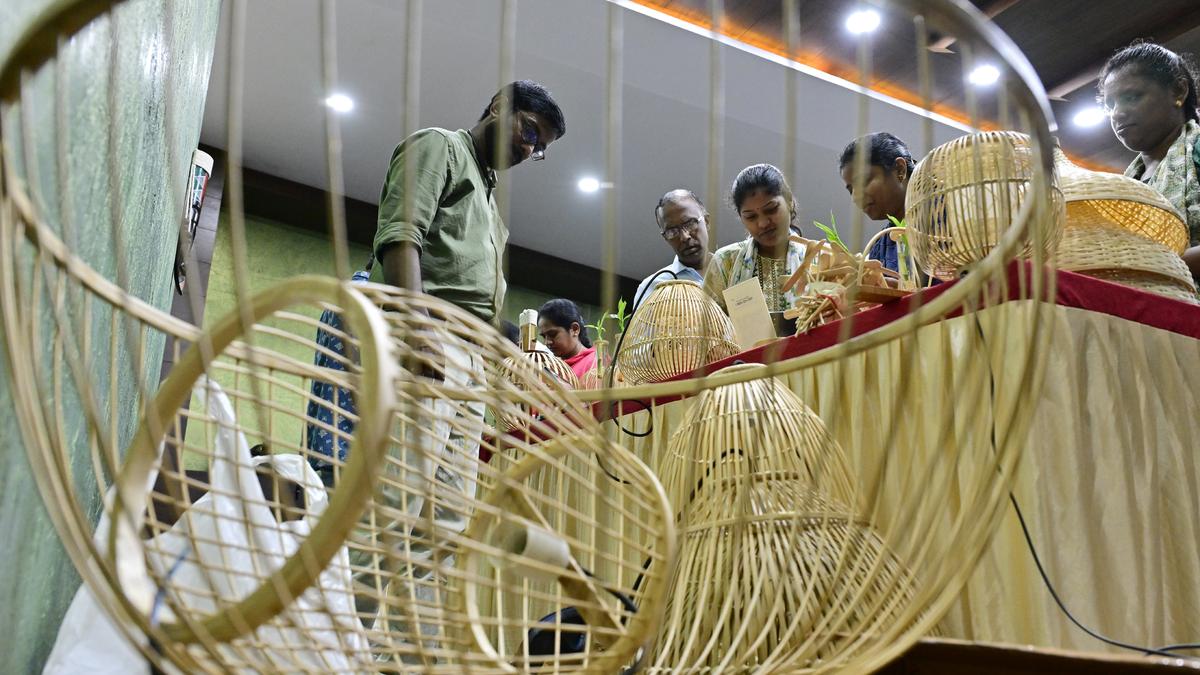
Experts shed light on bamboo cultivation and uses
The Hindu
Unlocking India's bamboo potential through value addition and policy changes to boost productivity and global market share.
“Raw bamboo is transported from the north-east to Bengaluru for manufacturing bamboo products. Without implementing research-based bamboo cultivation locally, achieving that level of quality remains a challenge,” said Sridhar Punati, Chairman of the Bamboo Society of India, on Friday, speaking at the State-Level workshop on Bamboo Cultivation, Processing, Value Addition, Marketing and Exhibition of Value Added Products of Bamboo.
He further said, “India taps only one-tenth of its bamboo potential due to lack of facilities for value addition and transportation, as well as low productivity, which is about 2 tons per hectare annually. This underutilization results in the country contributing only 4% to the global bamboo market, despite having 30% of the world’s bamboo resources.”
The event was convened under the joint auspices of the Institution of Agricultural Technologists, Departments of Agriculture, Watershed Development, Forest, Institution of Agroforestry Farmers and Technologists, Bengaluru and Bamboo Society of India.
Speaking at the event, B.L. Chidananda, a retired professor from the University of Agricultural Sciences, said, “Bamboo presents substantial advantages, including being a sustainable fuel source, a soft fibre, and a shelter material. It absorbs carbon dioxide, releases oxygen, reduces temperatures by 3-4 degrees, and conserves soil and water, making it eco-friendly.”
He said, “Despite these benefits, farmers face challenges in adopting bamboo cultivation due to irrigation issues, selecting the appropriate species for specific applications, marketing difficulties compared to other crops, high volume and transportation costs, and a non-profitable market. Bamboo, however, can be cultivated with less water and lower costs. It is a versatile material, durable for long-term use in furniture and the construction sector, beyond just small furniture and toys.”
He also highlighted that in 2017, the Indian government reclassified bamboo from a tree under the Indian Forest Act of 1927 and that this amendment facilitated bamboo cultivation by removing bureaucratic barriers, thereby enhancing productivity, employment, and economic opportunities in rural regions. “
During the farmers’ interaction session, a few farmers expressed dissatisfaction with their crops suffering from multiple diseases in November and December, resulting in nodal gum secretion in their bamboo yields. Consequently, they were compelled to sell their produce at significantly reduced prices. Additionally, a farmer from Mandya, Karnataka, highlighted the diminishing relevance of agroforestation education, particularly concerning Nilgiri trees.

In a breathtaking display of musical prowess, the Singspirations, a Tiruchi-based choir group, in collaboration with the Glauben Ensemble and the Genesis Chamber Orchestra, presented a sublime performance of Wolfgang Amadeus Mozart’s Requiem in D minor, K. 626, in its entirety, mesmerising audiences.












